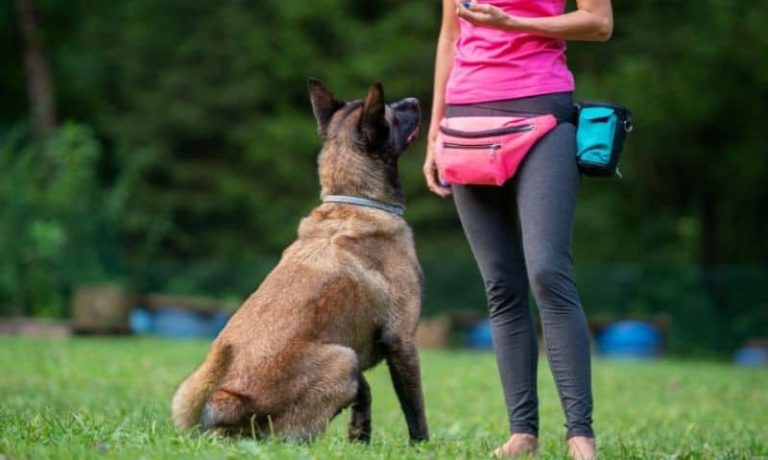So, you’ve adopted a new dog. Congratulations! As exciting as this time is, now the real work begins. If you want to raise a dog that is well-behaved and well-adjusted, it’s time to start focusing on how you are going to train and socialize your dog. For many, especially those dealing with specific training-related concerns, this means that it’s time to find a dog trainer or behaviourist in your area.
The hard truth is that dog trainers aren’t strictly regulated. Anyone can make a website and claim to be a professional. Before you run to Google “dog trainer near me”, there are a few red flags that you need to look out for.
Working with a questionable dog trainer is not only going to fail to give you the results that you want, but it can also set your dog back considerably. It can even cause significant problems for you and your dog for years to come. In some cases, it can even lead to abuse, injuries, or even the death of your dog when left in the wrong hands.
Whether you’re searching for dog training through group training classes, one-on-one lessons, or by connecting with an in-home dog trainer, this advice applies.
Here are 8 tips and tricks to help you sort through the noise and find a dog trainer or behaviourist that you can trust with your dog’s well-being.
Beware of Self-Taught Dog Trainers
This isn’t to say that you can’t learn a lot about the proper handling and training of a dog at home. But a dog trainer that hasn’t invested any effort into getting some sort of certification is a big red flag.
There is no dog training university or one solo organization to offer certification for this.
However, you want to find a dog trainer that is putting the effort into seriously learning and improving in their field. This could include well-respected dog training programs that focus on force-free training like Karen Pryor’s Academy for Animal Training & Behavior.
They may also belong to professional organizations such as The Association for Professional Dog Training or be certified by the Certification Council for Professional Dog Trainers.

Unwilling to Discuss Their Methods
If you are talking to a dog trainer and asking a question about their methods, they should respond with complete transparency. Anything less is a BIG red flag! Especially if they are asking you to leave your dog with them for any length of time.
Some important questions to ask include:
- What tools do you plan on using? How will they be used in training my dog?
- In what ways do you praise or reward dogs?
- What do you do if a dog isn’t responding in the way that you want them to?
If a trainer hesitates, refuses to give this information, or appears to be talking in circles, pay attention! What are they hiding?
Pack Theory, Dominance, or other Force-Based Training Approaches
There once was a time when it was believed that the key to getting a dog to listen was to force him into submission, taking the role of pack leader. This was used by many big-name dog trainers.
That approach has been debunked. There is no scientific evidence that it works to train a dog properly.
In fact, in many cases, it can create stress, anxiety, and even aggression in your dog over time. These are behavioural problems that often won’t surface for months or even years after your dog goes through this training.
If a trainer bases their work on these concepts, steer clear.
Check Their Social Media Accounts
Take some time to look over their social media accounts. Most dog trainers will be on at least one platform, sharing their work, showcasing their clients, and explaining their methodology.
Scroll through these posts and look closely. Look beyond just the words. For example, if the trainer you are speaking with states that they use no force-based training methods, but you see dogs in their training sessions wearing a prong collar or e-collar, then they aren’t being truthful with you.
You want to connect with a trainer who not only says everything that you want to hear but also follows through on those promises.

Dogs Appear Fearful of the Trainer
If you have an opportunity to watch a class or spend some time around their business, pay attention to how the dogs respond to the trainer.
Are they excited to see the trainer? Are they sniffing his pockets or looking for rewards? If so, this shows that they have a positive association with the training process and are looking forward to their training session (even if that positive association is food-based at this point).
On the other hand, do the dogs appear to be fearful of the trainer? Do they show signs of anxiety or try to pull away? This is a HUGE red flag.
At the end of the day, you want your dog to behave a specific way because they WANT to behave for you, not because they are afraid of what you may do to them if they don’t get it right. Fear is never a good solution when working with dogs.
They Guarantee Results
This may look like a good thing on the surface. But you must remember that you are working with living, breathing creatures. You can’t always predict how things are going to go.
While training with proven positive reinforcement-based methods has shown to be effective in most cases, there are going to be some situations where one specific approach may not work. Alternatively, your dog simply may not connect with your trainer for one reason or another.
A guarantee is usually nothing more than a sales tactic to convince first-time dog owners to hand over a credit card and start booking classes or appointments. There are always exceptions but proceed with caution.
Unwilling to Provide References
Always ask a potential trainer for references from previous clients. This includes not only dog parents that they worked with last week, but also those that have seen the long-term impact of this training on their dogs.
A trustworthy trainer will be more than willing to provide you with references.
If they aren’t willing to connect you with someone, take note. You want to find a dog trainer that is invested in long-term success for the dogs they work with and their owners.

Trust Your Gut
When it all comes down to it, don’t forget to trust your gut. You don’t have to know why it doesn’t feel right and you certainly don’t owe anyone an explanation.
No one knows your dog better than you and if it doesn’t feel right – keep looking!
Experienced dog owners, what advice do you have for those trying to find a dog trainer or behaviourist to work with their new pup? We’d love to hear about your experiences!























